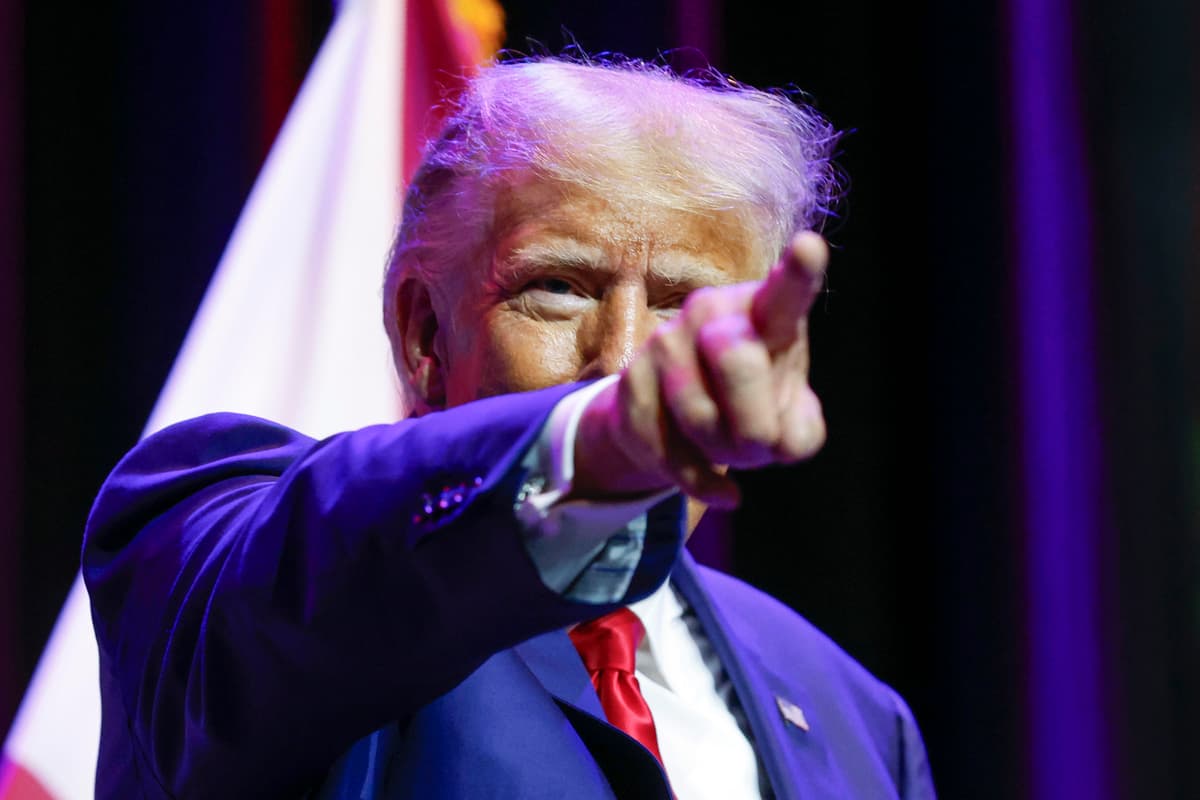Could Jack Smith Resist Being Fired by a Re-Elected President Trump?
The powers of the president are awesome, but a long history suggests it won’t be easy to dismiss a special counsel.

Governor DeSantis’s promise that he would fire Special Counsel Jack Smith on “day one” of his hypothetical administration could be an instance of a half-right prophecy.
One need not be a reader of runes to realize that Mr. DeSantis has little hope of taking the White House. President Trump, though, does, according to multiple recent polls. He has attempted no camouflage of his ire at the special counsel prosecuting him on two fronts — for efforts to overturn the 2020 election and for storing sensitive materials at Mar-a-Lago.
Would a second Trump administration continue paying the bills for Mr. Smith’s prosecutions? They have already cost the Department of Justice millions of dollars. Mr. Trump has called Mr. Smith “deranged” and a “disgrace to America.” He’s insisted that the special counsel “GO TO HELL.” Could a second Trump presidency, though, formally defrock Mr. Smith and send him packing?
At first blush, the answer to this question appears obvious — the Constitution vests all of the executive power in the president, and that includes the power to appoint its officers and the power to fire. The special counsel regulations under which Mr. Smith was appointed, though, mandate that the “Special Counsel may be disciplined or removed from office only by the personal action of the Attorney General.”
Those procedures, called the “Reno Regulations” for the attorney general who promulgated them, dictate that removal is only contemplated “for misconduct, dereliction of duty, incapacity, conflict of interest, or for other good cause.” Should the attorney general decline to pursue a course of action recommended by the special counsel, the senior lawman must inform Congress in writing.
In the wake of Watergate, the Ethics in Government Act of 1978 created an office of the independent counsel, a prosecutor appointed by a panel of the United States Court of Appeals for the District of Columbia Circuit. He had an unlimited budget, no deadlines, and could be fired for only a cause such as personal misconduct — and not by the president. The autonomy from the White House was the point.
The constitutionality of that scheme was affirmed at the Supreme Court in the case of Morrison v. Olson by a margin of seven to one, which held that an independent counsel was not crosswise with the separation of powers, the powers of the presidency, or the limits the Framers saw fit to place on the judiciary.
The lone dissent was from Justice Antonin Scalia, who asserted in respect of the special counsel that the case for the independent counsel was about “Power. The allocation of power among Congress, the President, and the courts in such fashion as to preserve the equilibrium the Constitution sought to establish.” Scalia asserted that it “is ultimately irrelevant how much the statute reduces Presidential control” — should it do so at all, it is unlawful.
Mr. Trump is no stranger to this experience of reduced control with respect to appointed prosecutors. During his first term, Attorney General Sessions recused himself. His deputy, Rod Rosenstein, up and appointed Special Counsel Robert Mueller to investigate accusations of collusion between the Trump campaign and Moscow. Mr. Mueller ultimately decided not to recommend that Mr. Trump be charged by the DOJ.
Could Mr. Trump have fired Mr. Mueller directly? The question would likely have gone to the Supreme Court and revolved around how the current justices read Olson and the weight they give to the DOJ’s regulations — they ultimately are rules for practice rather than law. Mr. Trump could have fired Mr. Rosenstein and ordered the next deputy attorney general to fire Mr. Mueller, though the “good cause” requirement would still be there for the reckoning.
Should Mr. Trump win in 2024, he would presumably name an attorney general hostile to Mr. Smith’s work and amenable to repealing the regulations under which Attorney General Garland appointed him. Still unanswered constitutionally, though, is whether Mr. Trump could pull the plug on the special counsel directly. The question is complicated by the possibility that the 47th president takes office, he could be a criminal defendant — or a felon.
The appointment of Mr. Smith by Mr. Garland rather than President Biden has caught the attention of at least one prior occupant of the attorney generalship — Edward Meese III. He, along with two law professors, has a brief before the Supreme Court that argues that Mr. Smith’s turn as special counsel is unlawful because nothing in American law or history justifies the “appointment by the Attorney General of a private citizen to receive extraordinary criminal law enforcement power.”

